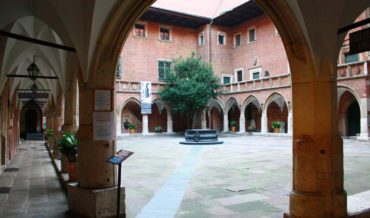Contents
Key Facts
- Born in Nowy Sącz in 1933, became a prominent figure in Krakow's medical community
- Renowned surgeon and professor at the Collegium Medicum of Jagiellonian University
- Served as Chancellor of the Medical Academy (later Collegium Medicum) from 1972 to 1981
- Author of over 150 scientific publications in Polish, German, and English
- Honorary Citizen of Texas and Minneapolis
- Member of prestigious international medical societies including New York Academy of Sciences, Collegium Internationale Chirurgiae Digestive, and American Gastroenterological Association
- Completed medical internships across major medical centers in the United States and Europe
Early Life and Origins
Professor Tadeusz Popiela was born in Nowy Sącz in 1933, though his distinguished career became inextricably linked with Krakow's prestigious medical institutions. Growing up in the pre-war period in southern Poland, he witnessed the significant changes that swept through the region during World War II and the subsequent reconstruction period.
His early experiences in Nowy Sącz, a city with rich medical traditions, likely influenced his decision to pursue medicine as his life's calling. The formative years in this historic Polish town provided the foundation for what would become an internationally recognized medical career, establishing him as one of the famous Polish people who have made significant contributions to their fields.
Academic Career and Medical Excellence
Education and Early Professional Development
Professor Popiela is a distinguished surgeon and professor at the Medical Academy, which was later integrated as Collegium Medicum of Jagiellonian University. His academic journey began when he started his medical studies in 1955, during a period of significant transformation in Polish higher education following post-war reconstruction.
The rigorous six-year medical program at one of Europe's oldest universities provided Professor Popiela with a comprehensive foundation in medical sciences. He graduated in 1961 as a Doctor of Medicine, demonstrating exceptional academic performance that characterized his entire professional career. His dedication to scholarly excellence continued immediately after graduation, as he completed his habilitation in 1965, a significant academic milestone qualifying him for advanced teaching and research positions.
Professional Advancement and Leadership
At Jagiellonian University, Professor Popiela systematically advanced through academic ranks, demonstrating both clinical excellence and administrative acumen. During his distinguished career, he held the position of assistant professor before advancing to docent of the III Chair of General Surgery. This progression reflected not only his surgical expertise but also his ability to mentor future medical professionals in the heart of the university quarter.
The pinnacle of his academic career came in 1972 when he became a professor of the Medical Academy. More remarkably, he served as its chancellor between 1972 and 1981, a period during which he shaped the institution's direction and policies. His leadership during this era was particularly significant as it coincided with important developments in Polish medical education and healthcare system reforms.
International Experience and Collaboration
Professor Popiela completed internships in prestigious medical institutions across the United States and Europe, including medical centers in New York, Chicago, Durham, Erlangen, and Nurnberg. These international experiences were particularly valuable during the Cold War period when such opportunities were limited for Eastern European academics.
His time in American medical centers exposed him to cutting-edge surgical techniques and medical technologies often years ahead of what was available in Poland. Similarly, his experiences in German medical centers provided insights into European approaches to medical education and patient care, knowledge he later integrated into his work at Collegium Medicum.
Scholarly Contributions and Publications
Research Output and Academic Impact
Professor Popiela authored over 150 scientific publications in Polish, German, and English. This impressive body of work spans decades of medical research and clinical observation, covering various aspects of general surgery, medical education, and healthcare administration.
His multilingual publication record demonstrates his commitment to sharing knowledge across international boundaries. The ability to publish in German and English during the communist era in Poland was particularly noteworthy, requiring not only linguistic skills but also access to international medical journals and research networks.
Areas of Medical Expertise
Professor Popiela's research focused primarily on general surgery, with particular emphasis on gastrointestinal procedures and surgical education. His publications covered innovative surgical techniques, patient care protocols, and medical education methodologies that influenced surgical practice both in Poland and internationally.
Professional Associations and Recognition
International Medical Societies
Professor Popiela actively participated in multiple medical organizations, including prestigious international bodies. His memberships include the New York Academy of Sciences, Collegium Internationale Chirurgiae Digestive, and the American Gastroenterological Association.
These memberships were particularly significant during the Cold War era when professional exchanges between East and West were limited. His participation in these organizations facilitated knowledge transfer and professional development opportunities that benefited both his career and the broader Polish medical community.
Honors and Recognition
Professor Popiela received recognition as Honorary Citizen of Texas and Minneapolis, acknowledgment that reflects his contributions to international medical cooperation and exchange. These honors are particularly remarkable given the geographical and political distances that separated Poland from these American locations during much of his career.
The honorary citizenships represent more than ceremonial recognition; they acknowledge his role in building bridges between medical communities across continents and his contributions to advancing surgical knowledge and practice on an international scale.
Personal Interests and Global Perspective
Beyond the Operating Room
Professor Popiela is recognized not only as an excellent surgeon but also as an avid traveler. His passion for exploring the world has taken him far beyond professional obligations and medical conferences, contributing to his cosmopolitan outlook and global perspective on medicine.
His extensive travels have served both personal enrichment and professional development, allowing him to observe different healthcare systems, collaborate with international colleagues, and gain perspectives that enriched his understanding of medicine as a global discipline.
Cultural Impact and Legacy
Professor Popiela's international experiences made him a cultural ambassador, representing Polish medicine and academic excellence in numerous countries. His global perspectives have provided valuable insights that he shared with generations of medical students, inspiring many to pursue international collaboration and lifelong learning. Like other distinguished figures such as John Paul II, he has brought international recognition to Krakow's intellectual and cultural heritage.
Legacy and Continuing Influence
Impact on Medical Education
Professor Popiela's tenure as chancellor of the Medical Academy coincided with crucial developments in Polish medical education. His international experience and scholarly perspective helped modernize curricula, introduce new teaching methodologies, and establish exchange programs that continue benefiting students today.
His approach to medical education emphasized combining rigorous scientific training with humanitarian values, preparing physicians who could excel both technically and ethically in their practice. The institution's commitment to excellence is also reflected in its cultural contributions, including the Jagiellonian University Museum which preserves the university's rich academic heritage.
Contributions to Krakow's Medical Heritage
Although born in Nowy Sącz, Professor Popiela became an integral part of Krakow's history and distinguished medical tradition. His work at Collegium Medicum helped maintain the institution's reputation as one of Europe's leading medical schools, continuing a tradition of excellence dating back centuries to the founding of Jagiellonian University.
His contributions to Polish surgery, medical education, and international medical cooperation have established him as a significant figure in the history of Polish medicine, whose influence extends well beyond national boundaries. Among the ranks of distinguished Krakow leadership figures who have shaped the city's academic and cultural landscape, Professor Popiela's legacy continues to inspire future generations of medical professionals. His achievements also contribute to Krakow's broader cultural heritage, which is celebrated in institutions like the National Museum that preserve the city's intellectual and artistic legacy.

